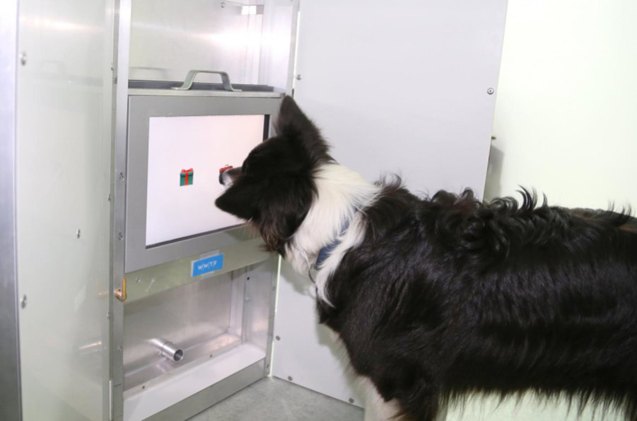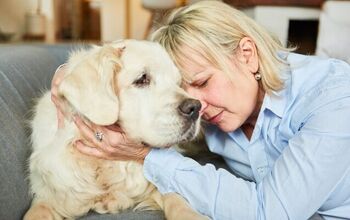Study: When It Comes to New Tricks, Younger Dogs Learn Faster

Researchers at Vienna’s Messerli Research Institute studied the cognitive abilities of dogs as they aged. Specifically, they looked at a dog’s ability to learn, its memory and its use of logical reasoning – skill sets that up until this at the time, had only been studied in humans.
Lisa Wallis and Friederike Range conducted the research which involved 95 Border Collies ranging in age from five months to 13 years being tested on a touch sensitive monitor at regular intervals over a period of time. Why Border Collies? Because they’re considered fast learners, they are easy to train and with them being such a popular pet, finding 95 test subjects was relatively easy.
Related: New Study Proves Dogs Recognize Human Emotion
For the initial testing the dogs were divvied up into five groups based on their age and were tested on four tasks designed to gauge their cognitive abilities: learning, logical reasoning and memory.
The pooches were shown a total of eight pictures, two at a time. By touching one of the two pictures presented, the dogs were rewarded with a treat but received nothing (actually, a time out) whenever they touched the second picture. Researchers wanted to understand if the dogs could make a conscious decision. Needless to say, in time the peckish pooches began to connect the reward with certain pictures and regardless of the sequence or combination in which they were presented, they soon selected the one that would net them a treat.
Related: Study Says That Pet Type Says A Lot About You
The findings? Aging does in fact affect the cognitive abilities of dogs. Although all were capable of learning, the older dogs were slower to connect a certain picture with receipt of the treat.
The second phase of the testing involved a second round of “pick the picture,” yet this time the researchers swapped out the positive, rewards-based picture with a completely new one. So now Rover is being asked to choose between one he knows will not reward him, and a brand new option that he has no connection to. In other words the dogs must consciously choose to exclude the negative picture in hopes the new one will result in a treat.
This time the findings showed that older dogs were more determined to make the choices they had previously learned. Younger pups had a more difficult time choosing the new photo while older ones refused to pick the one they knew to be negative. In short, logical reasoning improved with age.
Finally, the research team revisited the same group of dogs six months after the initial study. The same pictures were used and results showed that almost all the test subjects recalled the pictures that would result in a treat. In a nutshell, long-term memory is not affected by age
In the bigger picture, these studies benchmark cognitive behaviors in Border Collies of various ages and could potentially be used to study cognitive deficits in other breeds; hopefully supporting early recognition and treatment.
[Source: Science Daily]

Sharing space with three seriously judgy Schnoodles and a feline who prefers to be left alone. #LivingMyBestLife
More by Mary Simpson























